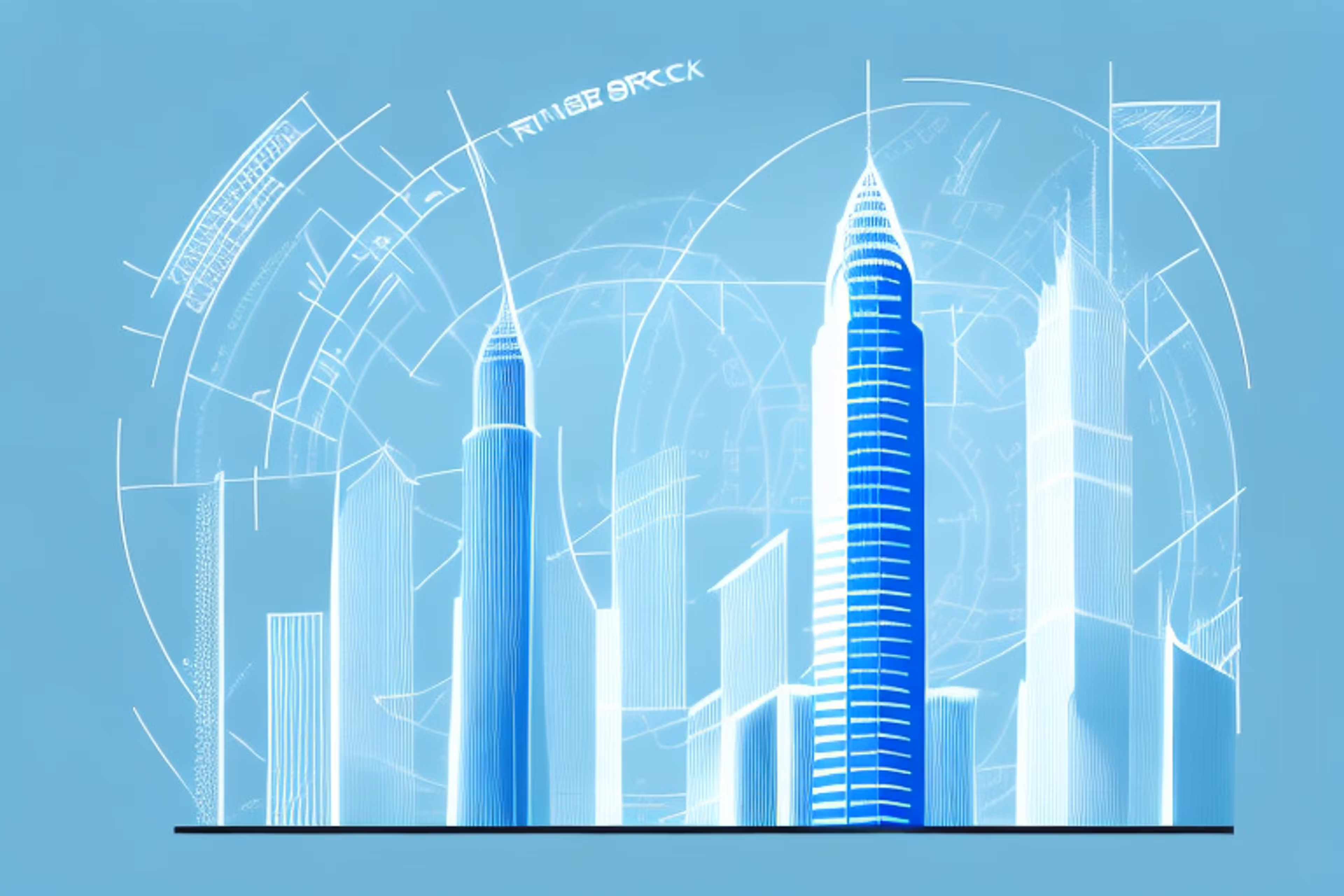Investment Banking Interview Follow-Up: Leaving a Lasting Impression
Gain a competitive edge in your investment banking interview by mastering the art of leaving an indelible mark. Discover a wealth of insights, meticulously crafted tips, and proven strategies to ensure a memorable and impactful follow-up, improving your chances of securing the role.
Posted April 10, 2025

Table of Contents
Investment banking is a highly competitive field, and securing a job in this industry requires more than just impeccable credentials and interview skills. Following up after an investment banking interview is a critical step that can make all the difference in leaving a lasting impression with the interviewer and ultimately landing the job you desire. In this article, we will explore why a follow-up email is crucial, how to craft the perfect thank-you note, when to send your follow-up email, how to personalize it, what to do when following up with multiple interviewers, and how to turn a rejection into an opportunity. We'll also discuss ways you can network beyond the interview, why persistence is key, and what you should and shouldn't do when following up on LinkedIn. Read on to find out more!
Why a Follow-Up Email is Crucial After an Investment Banking Interview
Following up with a prospective employer after an interview is a must, regardless of whether you think the interview went well or not. A follow-up email serves several purposes. It shows that you are interested in the position and grateful for the opportunity to interview. It also allows you to reiterate your qualifications and address any questions the interviewer may have had. A follow-up email reminds the interviewer that you are still interested in the position and willing to go the extra mile to secure it. This can set you apart from other candidates who may not have followed up.
Additionally, a follow-up email can also provide an opportunity to further showcase your knowledge and interest in the investment banking industry. You can include any relevant news or developments in the industry that you have come across since the interview, or mention any specific projects or deals that the company has been involved in that you find particularly interesting. This not only demonstrates your passion for the field, but also shows that you have been actively researching and staying up-to-date on industry trends.
Crafting the Perfect Thank You Note: Tips and Tricks
When crafting your thank-you note, it's important to keep a few things in mind. Be specific about what you appreciated about the interview, such as the interviewer's insight into the company, the company's culture, or the position's responsibilities. Reiterate why you are a good fit for the job, and include any additional qualifications that may not have come up during the interview. Make sure to proofread your thank-you note and keep it to a maximum of two short paragraphs.
Another important aspect to consider when crafting your thank-you note is the tone. You want to strike a balance between being professional and personable. Avoid using overly formal language, but also refrain from being too casual. Additionally, make sure to send your thank-you note within 24 hours of the interview to show your enthusiasm and appreciation for the opportunity. Remember, a well-crafted thank-you note can leave a lasting impression on the interviewer and set you apart from other candidates.
Timing is Everything: When to Send Your Follow-Up Email
The timing of your follow-up email is just as important as its content. Aim to send your email within 24-48 hours after the interview, while the conversation is still fresh in the interviewer's mind. This shows that you are prompt and attentive to deadlines, which are crucial skills in the investment banking industry.
However, it's important to note that the timing may vary depending on the industry and company culture. For example, if you're interviewing for a startup, they may prefer a more casual approach and appreciate a follow-up email a few days after the interview. On the other hand, a more traditional company may expect a follow-up email within 24 hours.
In addition to timing, the tone and content of your follow-up email can also make a difference. Make sure to personalize your message and reference specific points from the interview to show that you were engaged and attentive. It's also a good idea to reiterate your interest in the position and thank the interviewer for their time and consideration.
The Art of Personalization: How to Make Your Follow-Up Stand Out
To make your follow-up email stand out, try to personalize it as much as possible. If you spoke to the interviewer about a particular project or topic, reference it in your email by thanking them for their insights or offering additional thoughts on the topic. Mention any connections you have to the company or the interviewer, such as alumni from the same university or shared interests. Personalization also shows that you took the time to think about the interview and that you are genuinely interested in both the company and the interviewer.
Another way to personalize your follow-up is to reference any specific challenges or goals that the company is currently facing. This shows that you have done your research and are invested in the success of the company. Additionally, you can include a brief summary of your qualifications and how they align with the company's needs. This will reinforce your interest in the position and demonstrate your value as a potential employee.
Following Up with Multiple Interviewers: Dos and Don'ts
If you interviewed with multiple people, it is important to follow up with each of them individually and avoid sending a generic email. Use the interviewer's name and reference specific topics that you spoke about. Do not forward the same email to each interviewer, as this can come across as insincere and lazy.
Additionally, it is a good idea to personalize your follow-up email by mentioning something unique about each interviewer. For example, if one interviewer mentioned their love for hiking, you could include a sentence about a recent hiking trip you went on. This shows that you were actively listening during the interview and are genuinely interested in building a connection with each interviewer.
Turning a Rejection into an Opportunity: How to Follow Up Even if You Didn't Get the Job
Rejection is not uncommon in the investment banking industry, and it can be disheartening. However, even if you don't get the job, it's still essential to follow up with a thank-you email. This shows that you have the maturity and determination to continue networking and seeking out opportunities in the industry. In your email, thank the interviewer for their time and consideration, reiterate your interest in the company, and ask if they have any recommendations for other opportunities in the field.
Furthermore, following up after a rejection can also provide valuable feedback on your interview skills and qualifications. You can ask the interviewer for any constructive criticism or areas for improvement, which can help you better prepare for future interviews. It's important to remember that rejection is not a reflection of your worth or abilities, and that every experience can be a learning opportunity.
Networking Beyond the Interview: How to Keep in Touch with Interviewers for Future Opportunities
Even if you don't get the job, it's important to maintain a positive relationship with the interviewer. Follow them on LinkedIn and stay up-to-date on industry news. Keep in touch by sending articles or updates that may be of interest to them, or writing them a short note every few months to check in. This keeps you on their radar and may lead to future opportunities.
Another way to stay connected with interviewers is to attend industry events and conferences. If you see that the interviewer is attending an event, try to attend as well and connect with them in person. This can help to solidify the relationship and show that you are still interested in the industry and the company.
Additionally, consider offering your skills or expertise to the interviewer or their company on a freelance or consulting basis. This can be a great way to showcase your abilities and potentially lead to future job opportunities. Keep in mind that even if the company doesn't have a current opening, they may keep you in mind for future positions or refer you to other companies in the industry.
The Power of Persistence: Why Following Up Can Make or Break Your Career in Investment Banking
In investment banking, persistence is key. Following up after an interview shows that you are determined, organized, and detail-oriented - qualities that are highly valued in this industry. Following up may not guarantee that you get the job, but it does show that you are a proactive and diligent candidate that is willing to go above and beyond.
Moreover, following up can also help you build relationships with the interviewers and other professionals in the industry. Even if you don't get the job, sending a thank-you note or email after the interview can leave a positive impression and keep you on their radar for future opportunities. Additionally, following up can provide you with valuable feedback on your interview performance and areas for improvement, which can help you prepare better for future interviews.
The Do's and Don'ts of Following Up on LinkedIn After an Investment Banking Interview
Following up on LinkedIn can be a great way to keep in touch with interviewers and potential employers. However, there are several do's and don'ts to keep in mind. Do customize your message for each person you are reaching out to, and reference something specific from your interview or their profile. Do ask questions and show curiosity about the company and industry. Don't be pushy or aggressive, and avoid sending too many messages. Remember to keep your messages professional and respectful.
In conclusion, following up after an investment banking interview is a critical step in leaving a lasting impression with the interviewer and ultimately securing the job. By crafting a personalized, thoughtful, and timely follow-up email, you demonstrate your professionalism, interest, and attention to detail, all of which are essential qualities for succeeding in the investment banking industry.
It's important to note that following up on LinkedIn should not be your only form of communication with potential employers. While it can be a great way to stay on their radar, it's also important to send a thank-you email or note after your interview, and to continue networking and building relationships with professionals in your desired industry. By diversifying your communication methods and staying engaged with your network, you increase your chances of success in your job search.
Now that you're on your way to securing your new investment banking position, check out these articles to ensure you are fully prepared and ready to make the most out of your role:
- How to Develop Communication and Interpersonal Skills for Investment Banking
- Investment Banking Case Studies: Preparation & Strategies for Success
- Valuation Techniques Every Investment Banking Candidate Should Know
- Top Investment Banking Firms: A Competitive Landscape Analysis
- Investment Banking Verticals: Exploring the Diverse Industry Segments
- How to Prepare for Credit Suisse Investment Banking Interviews












